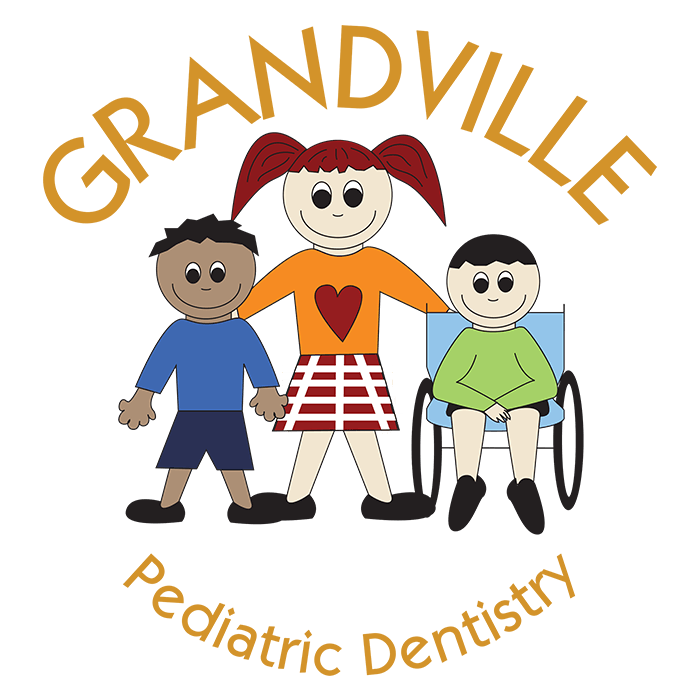5 Common Oral Health Problems & How to Prevent Them

Most parents work hard to help their children prevent cavities. However, there are also other types of oral health problems that can pose a risk to your child’s smile. Being aware of them, according to our Grandville, MI, pediatric dentists can help you make sure your child is practicing necessary oral hygiene habits at home in addition to the care they receive in our office.
Here are 5 and the steps that can be taken to avoid them.
1. Tooth Decay
, also known as caries or tooth decay, are preventable. While cavities might not endanger your child’s life, they may negatively impact their quality of life.
When teeth and gums are regularly exposed to large amounts of starches and sugars, acids may form that begin to eat away at tooth enamel. Carbohydrate-rich foods such as candy, cookies, soft drinks, and even fruit juices leave deposits on teeth. Those deposits bond with the bacteria that normally survive in the mouth and form plaque. The combination of deposits and plaque forms acids that can damage the mineral structure of teeth, resulting in tooth decay.
If you want to help prevent childhood cavities, good oral hygiene is key. Make sure your child brushes their teeth at least twice a day for 2 minutes and flosses once daily. If they are not old enough to brush their own teeth, our pediatric dentists recommend doing it for them by using the right sized toothbrush and appropriate amount of toothpaste based on their age. A damp cloth, piece of gauze, or silicone finger slip toothbrush are also options if their teeth haven’t erupted yet.
2. Sensitive Teeth
Did you know your teeth expand and contract in reaction to changes in temperature? While some amount of temporary discomfort is normal with temperature changes, sensitive teeth may react more strongly. For example, enjoying ice cream or hot chocolate can cause pain or irritation for children with sensitive teeth.
Over time, tooth enamel can be worn down, gums may recede, or teeth may develop microscopic cracks, exposing the interior of the tooth and irritating nerve endings. Just breathing cold air can be painful for those with extremely sensitive teeth.
Gum health is particularly important in preventing sensitive teeth. Make sure your child is seeing our dentists at least twice a year for a teeth cleaning to monitor the health of their gums.
3. Gum Disease
, also known as periodontal disease, can cause inflammation, tooth loss, and bone damage.
The condition often begins with a sticky film of bacteria on the teeth and gum line called plaque. Gums in the early stage of disease, also known as gingivitis, can bleed easily and become red and swollen. As the disease progresses to periodontitis, teeth may fall out or require tooth extraction.
Actively work to prevent your child from developing gum disease by encouraging daily brushing and flossing. One indicator of gum disease is consistent bad breath or a bad taste in the mouth. If this is occurring, please bring your child in to see our pediatric dentists so we can closely examine their smile.
4. Bad Breath (Halitosis)
Regular brushing and flossing help to prevent the buildup of food particles, plaque, and bacteria in the mouth. For example, if bits of food are left in the mouth and not removed, they will deteriorate and cause bad breath.
While certain foods, such as garlic or anchovies, may create temporary bad breath, consistent bad breath may be a sign of gum disease or another dental problem. If your child is struggling with bad breath, schedule an appointment with our pediatric dentists.
5. Orthodontic Problems
When the top and bottom teeth do not meet properly (a malocclusion), it can either be genetic and inherited from family or it can be acquired. Some causes of malocclusion include missing or extra teeth, crowded teeth, or misaligned jaws. Accidents or prolonged habits, such as thumb sucking or pacifier use may also cause bite issues.
There are orthodontic solutions, such as braces and aligners, that can help if your child is struggling with early tooth misalignment. Our pediatric dentists recommend children be screened by a local orthodontist around 7 years old. This is when your child will have a mix of baby and permanent teeth which can make arising issues more apparent. Certain problems can also be more easily treated at this age versus when your child is older.
Protect Your Child’s Smile from Oral Health Problems
Our pediatric dentists in Grandville, MI, can help keep your child’s smile healthy and free from any of the problems mentioned above. Call Grandville Pediatric Dentistry today at (616) 531-3430 to request an appointment.
This blog post has been updated.


